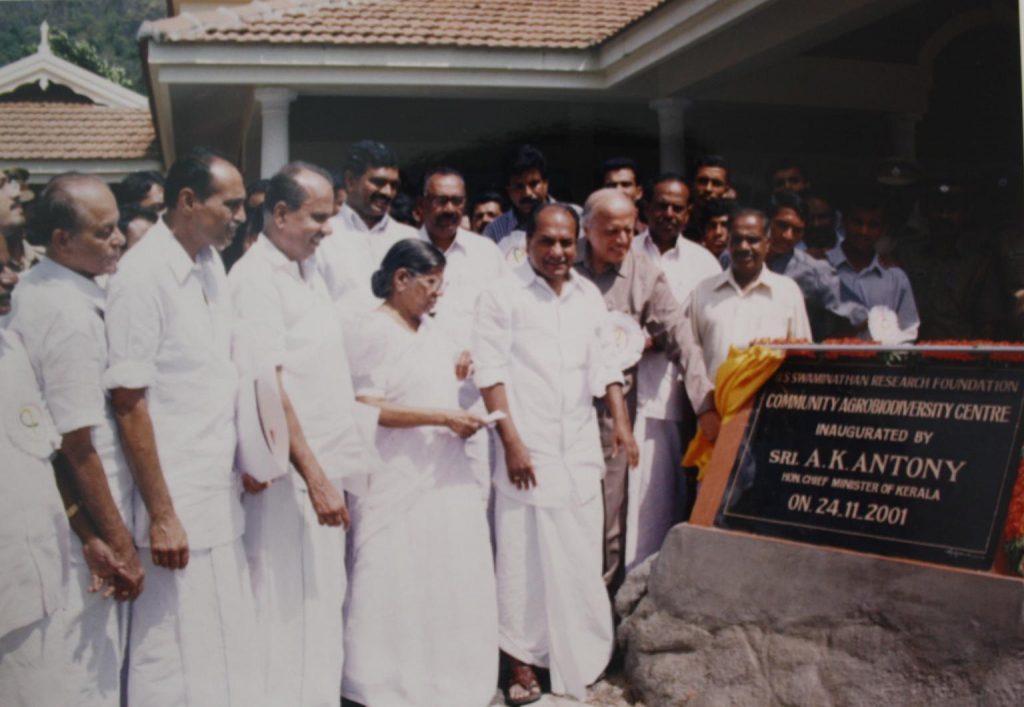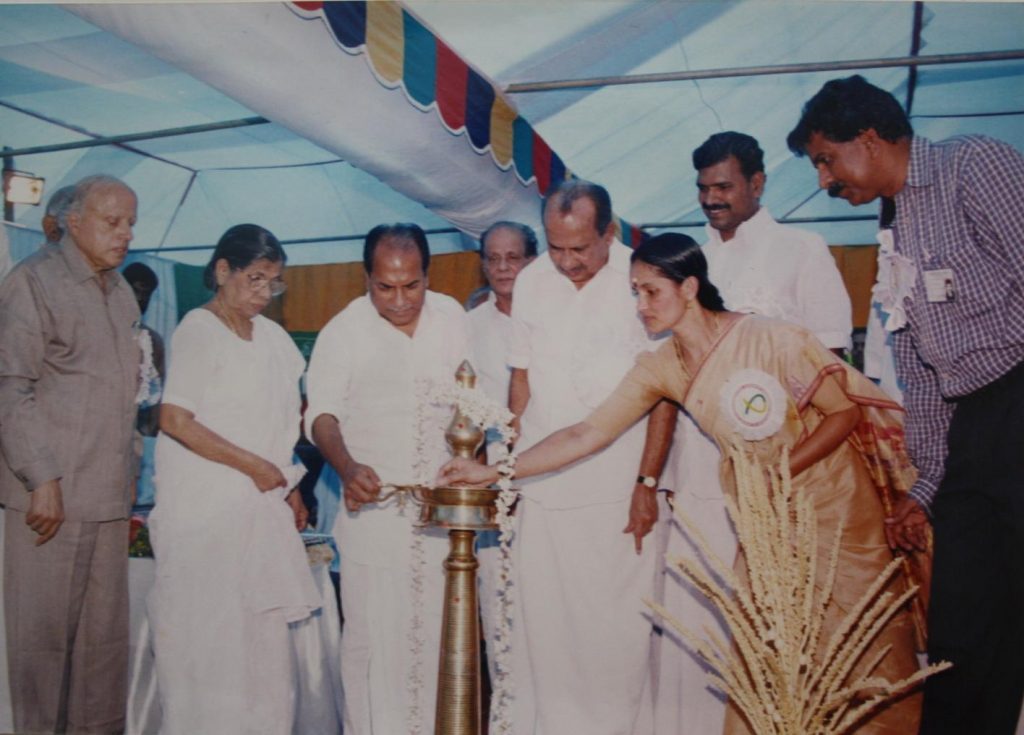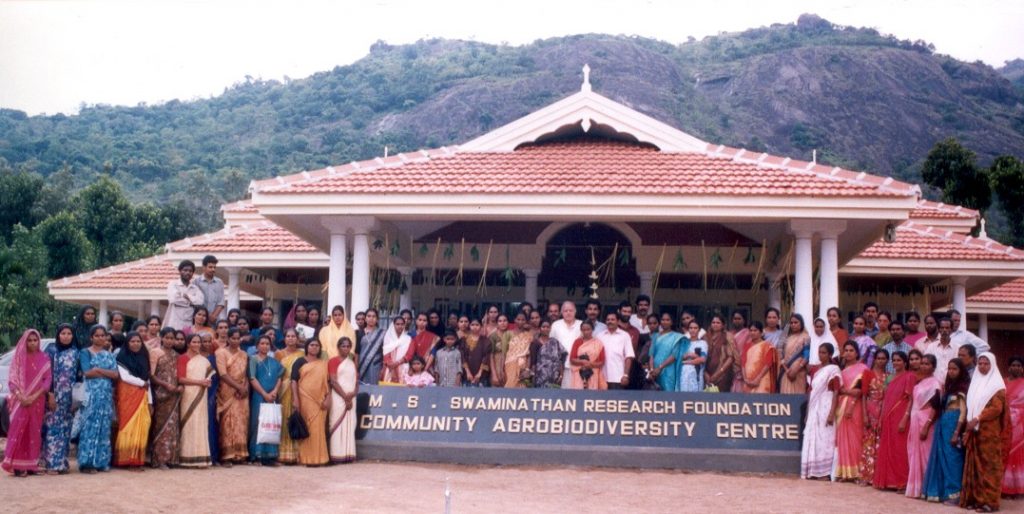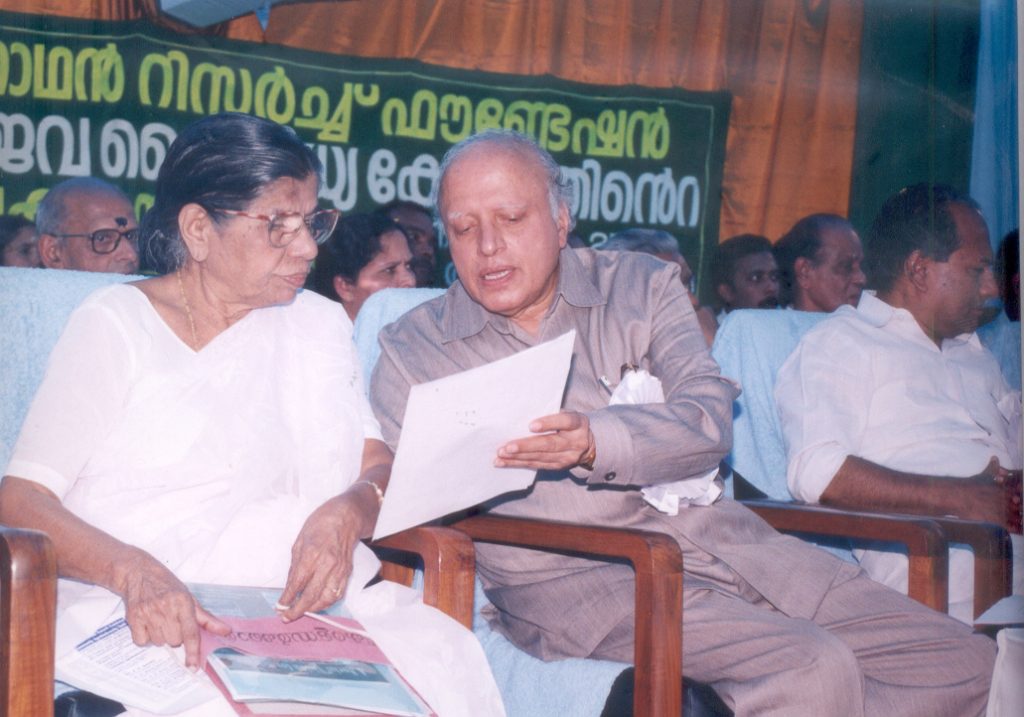Prof. M S Swaminathan, the renowned geneticist, conceived and developed the idea of a Centre for Community Agrobiodiversity Management, governed in partnership with local communities by a team of multi-disciplinary scientists, soon after the CBD provisions came into force in 1993.
His vision of applying a trans-disciplinary methodology in understanding the community biodiversity management practices, and integrating four key dimensions of community biodiversity management – Conservation, Cultivation, Consumption and Commerce – had been evolved into a practical approach to address the issue of sustainable livelihoods and food security.
Team CAbC Origins
The office of CAbC was inaugurated on the eve of Gandhi Jayanthi, October 2, 1996 by Sri. Narayana Swamy, the paternal uncle of Prof. M. S. Swaminathan. Under the leadership of Dr. N. Anil Kumar the initial team was raised comprising of Dr. C. Anil Kumar (Scientist) and Mr. K. F. Thomas (Farm Manager).
On 1996 December 27, a Policy Advisory Committee came into force under the Chairmanship of Prof. M. S. Swaminathan and set the Vision and Mission of the Centre. The key members of this committee were Dr K. N. N. S. Nair, Dr P. Pushpangadan, Prof. M. K. Prasad, Dr S. John Joseph, Dr R D Iyer, Sri. K. Viswanathan (Mitra Niketan), Sri. Ratnam Swamy, Dr Indira Balachandran and Sri. Sanath Kumar. This committee had developed the programme plan for its first five years (1997-2002) along with a detailed Annual Work Plan for the year 1997-1998. On 24-11-2001, CAbC had its own building ready, which was inaugurated by the then Chief Minister of Kerala, Sri. A.K. Antony.
The ‘Rise’ of CAbC
By 2007, CAbC expanded its infrastructure by adding up a training facility called Community Training Centre to offer residential training programmes, which was built with the support of people and Govt. of Japan. On December 27, 2013, A Botanic Garden in the CAbC’s premises in about 10-12 acres of land with collections of over 2000 plant species that are displayed in 20 different components had been dedicated to the people of Wayanad. This Garden is being called as M S Swaminathan Botanical Garden, which is a lead garden of the Ministry of Environment and Forests of Govt of India for RET plants of Western Ghats.
In 25 years of yeomen service to the society, the Centre has flourished into a full-fledged organization with over 50 staff members who are representing mainly plant science, agricultural science, social science, resource economics, community development and ecology.
The Centre now spreads out in a 20 ha campus with a Botanical Garden, necessary infrastructure, types of equipment, and human resources. The staff work in close association with two grass-root institutions named Wayanad Tribal Development Association and SEED Care, which together have over 200 men and women as members. The Centre facilitated the formation of these two organizations for involving the local community members and/or their representatives in the on-farm and community development activities of the organization.




